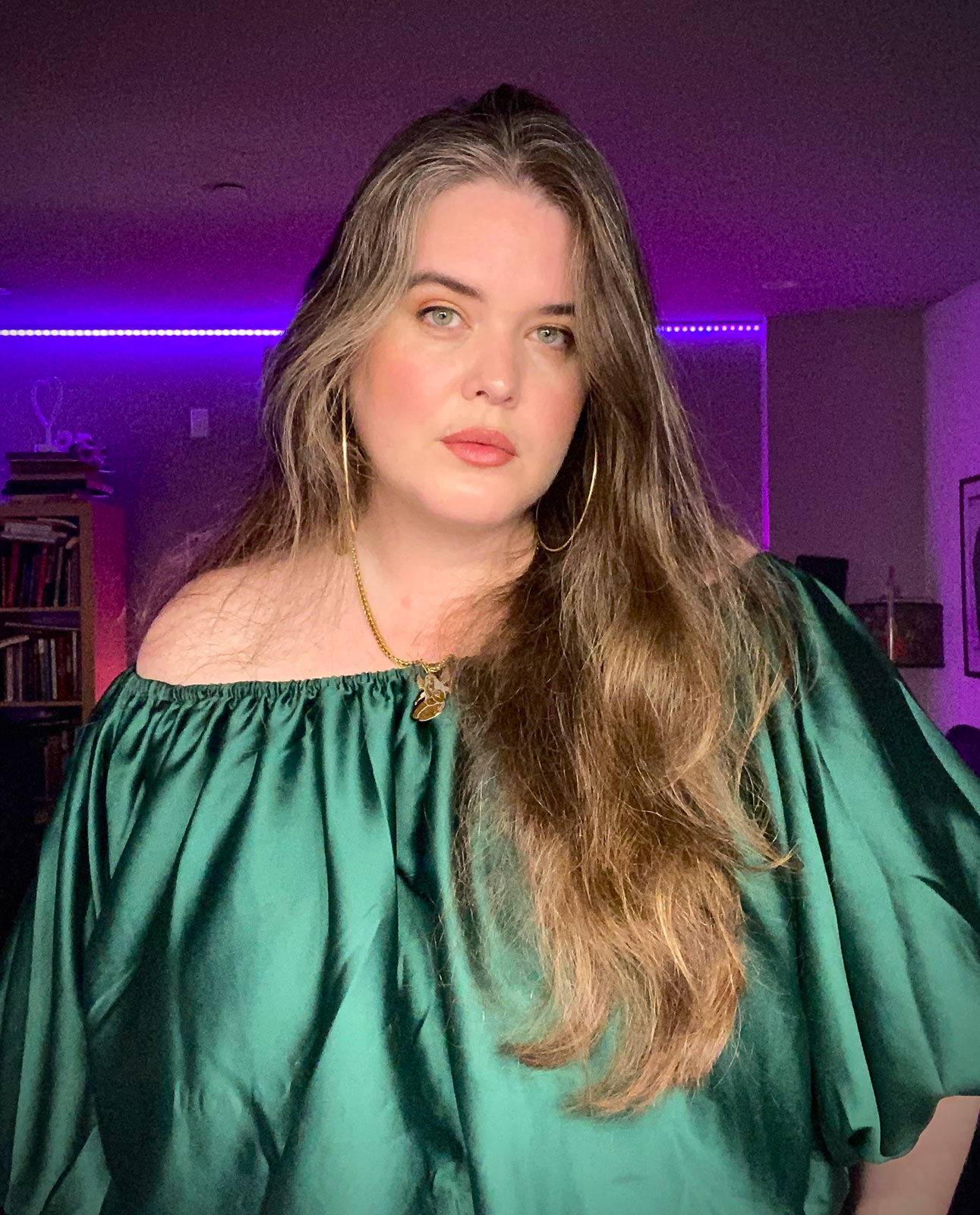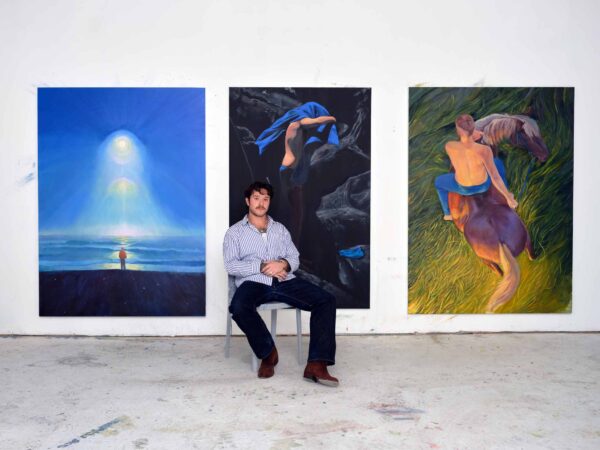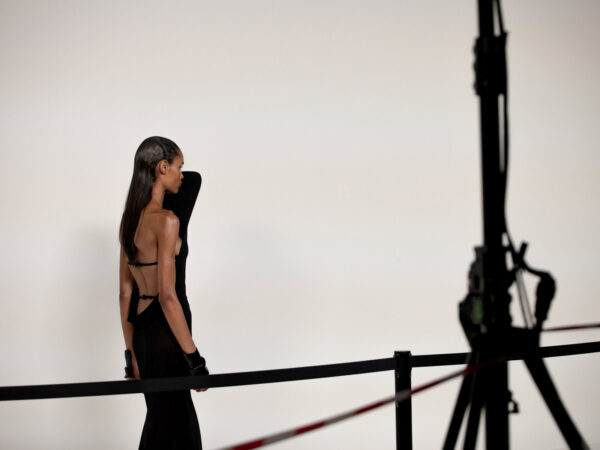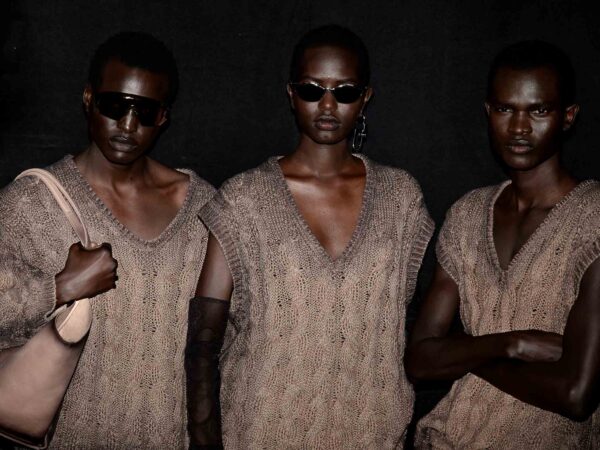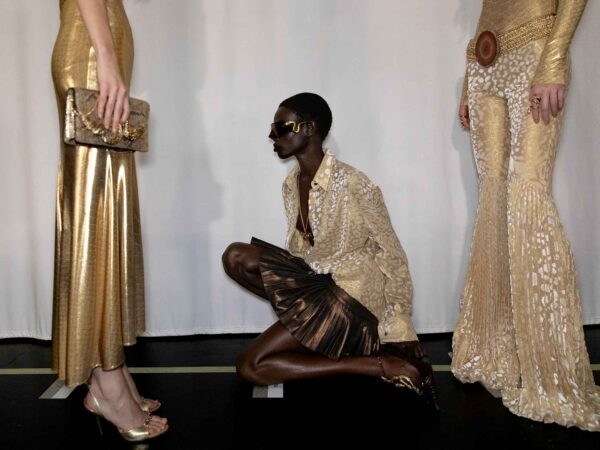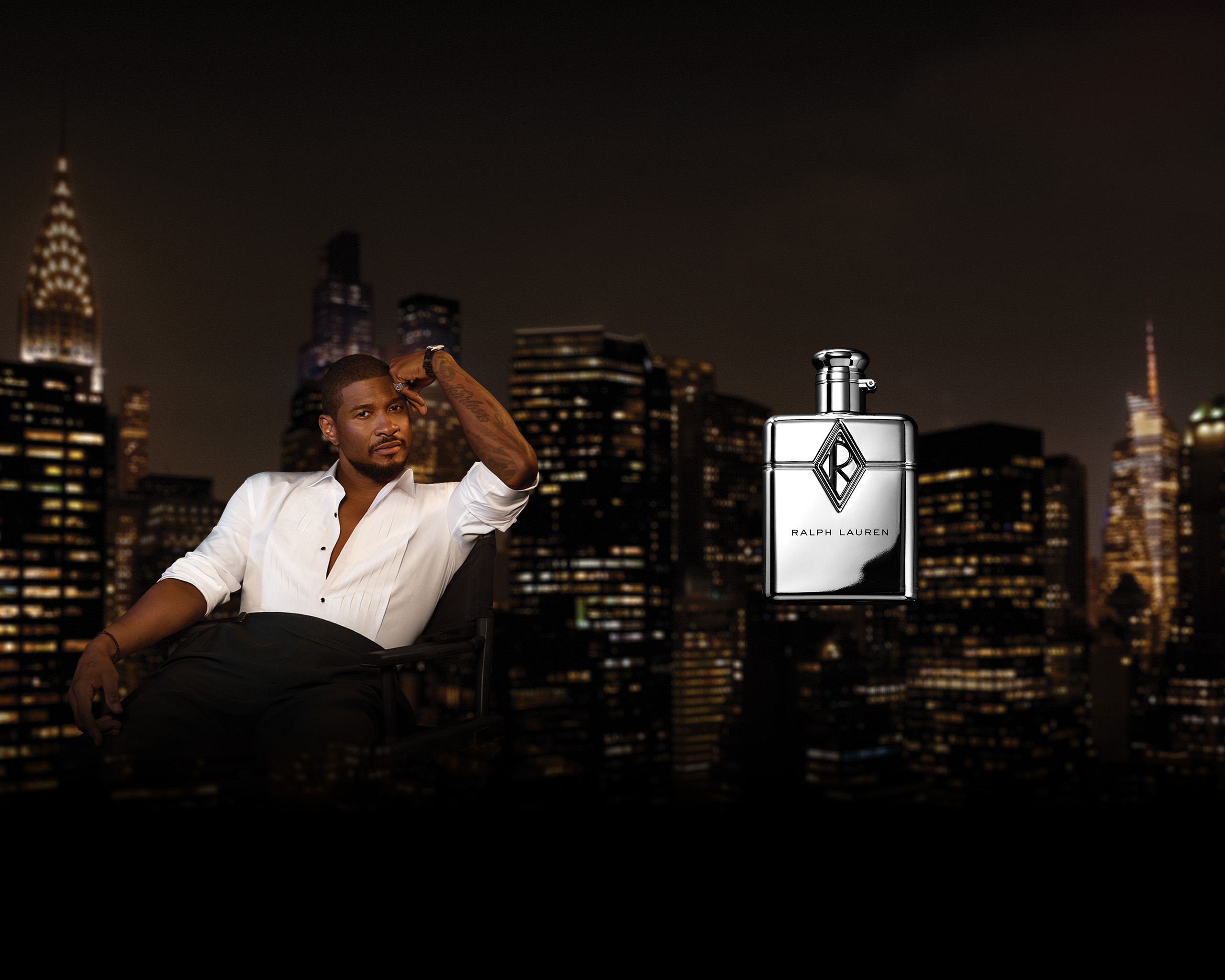
For the release of her first book, the writer, artist, and content creator sits down with Document to discuss digital citizenry, censorship, and the future of online criticism
Artist, author, critic and sometimes-content-creator Torey Akers did not necessarily set out to become semi-famous on TikTok. She was at a low point in her life, trapped in a failing relationship and sequestered in a small apartment during the COVID-19 pandemic. Like many of us, she turned to the internet for small doses of dopamine, choosing to post short clips of herself, quips, and takes on current events on TikTok. Pretty quickly, the validation poured in, from neighbors in Brooklyn to girls and gays around the world. People followed her for her thirst traps and selfies, but they also stayed for her incisive analyses of various cultural phenomena: takes on loneliness, body negativity, nail salon culture, white feminism, and grief. Starting early in TikTok’s rise, Akers has amassed over 70,000 followers on the platform, putting her in a category Shopify deems a “micro-influencer.”
Raised in Brookline, Massachusetts, Akers initially set out on a path in fine arts, earning an MFA in painting from Cranbrook Academy in 2016 and exhibiting in solo and group shows across the country from 2013 onwards. Her artistic practice led to a second MFA in creative nonfiction from Hunter College, and then to her current role as an Associate US Editor at The Art Newspaper. Her years of academic and artistic output, reading theory, and posting online have formed the backbone for her new book, Revolutionary Algorithms: A TikTok Manifesto, which releases today, January 7 with Hachette Book Group. The slim volume in some ways reads just like a TikTok feed, jumping from musings on the application and its role in our contemporary society, to censorship, community and organizing, her own experience on the app and off, and how a new hyper-online way of being shapes our lives. Akers also explores the potential ramifications of a TikTok ban on the current online landscape, between governmental overreach and liberatory potential. Revolutionary Algorithms is deeply referential, citing scholars, activists, critics, and thinkers from McKenzie Wark to Khaled Koubaa. Unlike many who scorn social media, Akers considers herself “fairly tech-neutral” as she tells me on Zoom, preferring to engage with the material reality and usage-potential of technology rather than morally lambasting people for using their phones.
Ahead of the book’s release, Akers sat down with Document to chat through the intellectual sticking points with TikTok that inspired Revolutionary Algorithms, what she’s learned from her time as a content creator, and the role short form social media has and will continue to play in the realm of cultural criticism.
Sabina Latifovic: You have experience across a variety of different artistic and intellectual media. How has the process of writing this book been for you, compared to creating content or a piece of art?
Torey Akers: I think that the coolest thing about art writing as a discipline, and also the history of art writing, is that because art is inherently multi-disciplinary and pulls from so many different philosophical silos, you have to be able to learn a lot about a subject quickly. I think that I couldn’t have written this without being an art writer, because it requires so much blending. I also think that the future of criticism is going to be about a sort of concatenation of genre and personal opinion and academic reference, rather than having specific expertise that is individual to various actors or participants.
Sabina: I feel like that’s what we see in the criticism that does well online, right? The kinds that people actually engage with—I feel like it tends to be a more hybrid form.
Torey: I think hybridity is the way that an algorithmic reality presents itself. We’re all encountering all information at once. And so critics are interested in being the filtration system, which is kind of how I see the future of criticism—criticism reifies itself through crisis. Every year, there’s a panel at some conference where they talk about how art criticism is in crisis. And every year, I think, You guys have not gotten to the bottom of this. Right now, there’s a lot of emphasis in discursive social media channels about how music criticism is in crisis, and how the rise of the opinion economy—plus the implosion of hierarchical legacy journalism and the fascist drip that is slowly boiling us alive—has created a hole where The New York Times used to be, or Pitchfork used to be.
My own small way of looking to the future of criticism is to focus less on value ascription and more on ekphrastic description, and in historical and analytical context, in personal affect, and to borrow more from academe and poetry. My people are Rosalind Krauss and Margo Jefferson and Christina Sharpe: people who have such a virtuosic relationship with themselves as lenses [for culture]. When you ask, ‘Who are the voices that people are listening to on TikTok?’ they are people who have a consistent lens, a prism into the multivalence of the social media algorithm done through voice.
“I am no longer interested in ‘those damn phones’ rhetoric. Phones are here. We are the cyborg people. We are dopamine addled. What do we do now?”
Sabina: How do you think TikTok as a format fits in, if at all, with the broader realm of criticism, which, historically, hasn’t really lent itself to short form content?
Torey: I think it’s ‘take culture.’ One thing I’ve been thinking about a lot is how, for decades in America in the context of the online attention cycle, we have always conflated comedians and thought leaders. We now exist in an entertainment media-opoly: our president is a former reality star. Our [next head of the] Department of Education is in the WWE family. Whether or not you think it’s tawdry and depressing, the American system has always operated on a hard power, soft power model of our surveillant police state, embassy export, and satellite embassy export, plus the propaganda arm. The history of Hollywood is a propaganda arm. Now we’re experiencing the slow fall of Rome, where propaganda has become the sole machine through which we can articulate ourselves. And in that context, if you’re thinking about how that trickles down, we are so dispossessed and so hungry for leading moments of charisma and perceived authority, that it’s really easy for anybody who can start and finish a sentence without completely falling apart, to do really well hawking trash ideas, or takes, online.
Sabina: Yeah, it’s also become such a huge marketplace and also a form of employment for a lot of people.
Torey: Oh absolutely. But I think the opposite is [also] true, which is that you also hear from a ton of people who otherwise couldn’t have any kind of traditional media platform, who are interesting and thoughtful and have unique, informed perspectives. So I think that criticism is changing, and my theory of America is that we fetishize free speech to the exclusion of human rights, so everybody’s talking all the time, and not a ton is happening. And as a certified talker, I recognize that so much of my content feels bold, but is, in fact, inherently kind of redundant.
Sabina: Can you say more about that?
Torey: I mean, look at Luigi [Mangione]. What works is shooting people. I think a lot of people are very, very crabby about perceived censorship, but certainly the absence of censorship and the presence of total legislative override of our human rights creates talk about echo chambers, and we’re not in an echo chamber. We’re just all in a warehouse together, and we don’t notice that the doors are locked. You don’t need another person who went to graduate school, you need someone who can pick a padlock. When we think about what the future of criticism in America is, we have to be less traditionalist and have a less institutionally codified understanding of what reaches people and what works, what a populist criticism could look like, and also how to get people involved.
When I think of myself as a writer, I do not think that my job is to provide coherent governmental solutions to the ills of late capitalism. I think my job is to filter big questions through aesthetics and deliver that to people to see if they feel moved to action, or moved to aesthetic action—that is my modest contribution. But I think that sitting on the internet and whining about the fact that Gen Z doesn’t know what analysis is anymore is a deeply old fashioned stick-in-the-mud way to engage with the fact that people want to understand what they consume. People want to have an ownership and filtration relationship with the enormous amount of hyper-expensive propagandist corporate media properties that are being pumped into their brains by the streaming apparatuses everybody has on all of their devices all the time. I am no longer interested in ‘those damn phones’ rhetoric. Phones are here. We are the cyborg people. We are dopamine addled. What do we do now?
Sabina: How has being a semi-public figure online shaped your sense of self as an online subject? Do you ever find that you have a different relationship to, say, scrolling or ingesting content than like the people in your circle who are more anonymous?
Torey: I used to. I think because I kind-of-purposefully fell off, I now think of myself way more as a subject-user, rather than an entertainer. While I was in the pandemic times of furiously making content, buying a ring light and shit, I was [more an entertainer]. I think the only insight it gives me that I think other people—or rather non-posters, the lurker community, if you will—take for granted, is that I understand the machinations and decision-making of viral antagonism specifically. So if I wanted to get a million views right now, I sort of know how to do that. I can’t guarantee that I could get a million views, but I know what would make people insane.
I’m not big enough that it has changed my relationship to scrolling. I am still semi-anonymous, like 70,000 people isn’t that many people in the grand context of TikTok, and they’re not [all] active. I can see rage bait very quickly for what it is, and I can see engagement very quickly for what it is. I understand the beats fairly well. And I think, honestly, that helps me. I don’t like feeling frustrated, so I’m not a person consuming content that’s supposed to make me mad. And I think that the fact that I can live inside the logic of creating viral moments allows me to feel a lot less bad. And also, working in journalism, I know what it means to make a headline, and I know what your lead sentence should be, and I know a little bit about how the sausage gets made. Again, not an expert on anything, my blood pressure is a lot more even, I think, than a lot of other users.
“It’s not that the future does not exist, it’s that the future has a more collectivist hacker relationship. I think that there’s still a lot to learn about human connection and the preciousness therein.”
Sabina: I thought your argument that a user is distinct from a citizen, not just by virtue of disposability, but through ‘the direction of her digital taxation she pays to be extracted,’ was really interesting, especially since you had also noted both the liberatory and the authoritarian potential in TikTok and social media in general. Could you expand a little bit more?
Torey: I think that we have to start thinking about user-citizenry in the context of oligarchy. We have had an oligarchy for a very long time, but especially with the governmental proximity of characters like Elon Musk and Peter Thiel, people are more interested in talking about tech oligarchy now. When I’m talking about the user as the kind of citizen that we need to consider, we’re talking about someone who does not have to be coerced into signing their rights away, because in order for them to maintain entertainment and connection, they are already doing it. We need to be thinking more about how the condition of a user differs from our traditional understanding of the condition of a subject.
My hope for the book, and one of the biggest takeaways [from writing it], is the consideration of tech-neutrality. I do not have a doom-and-gloom relationship with tech. I have a doom-and-gloom relationship with the way that tech is leveraged. I think that Trump’s unhinged, mouth-foaming excitement about taking the guard rails off AI is a sign of really sinister machinations to come. But I also think that lambasting and dismissing artificial intelligence betrays an ignorance about its history as a surveillance technology. My hope for the future of tech is that it is not private. It’s not that the future does not exist, it’s that the future has a more collectivist hacker relationship. I think that there’s still a lot to learn about human connection and the preciousness therein.
At the end of the day, what do influencers watch? They all say that they’re watching their childhood friends on Facebook scream at their ex-partner and the comments on their statuses. Ultimately, we’re all regular, people who want to be safe and want to be noticed and we want to have orgasms and eat delicious food. That’s what people want. And I think if you don’t have a paternalistic or censorious attitude towards these channels, you’re necessarily interested in chaos. So that’s my hot take: that people are people, and the internet is going to be bad sometimes.

